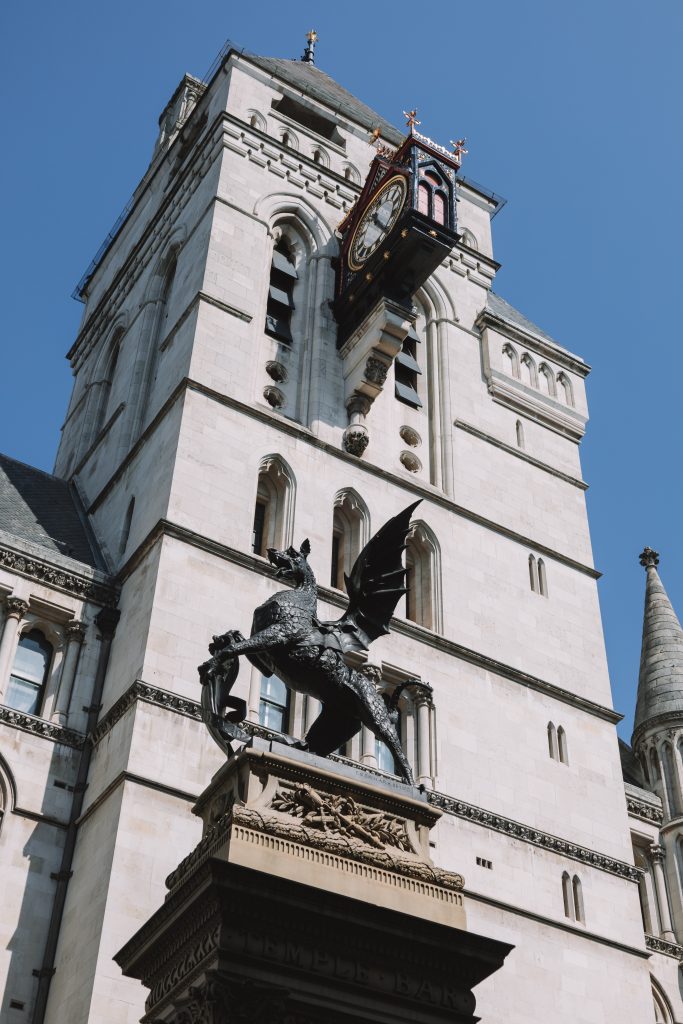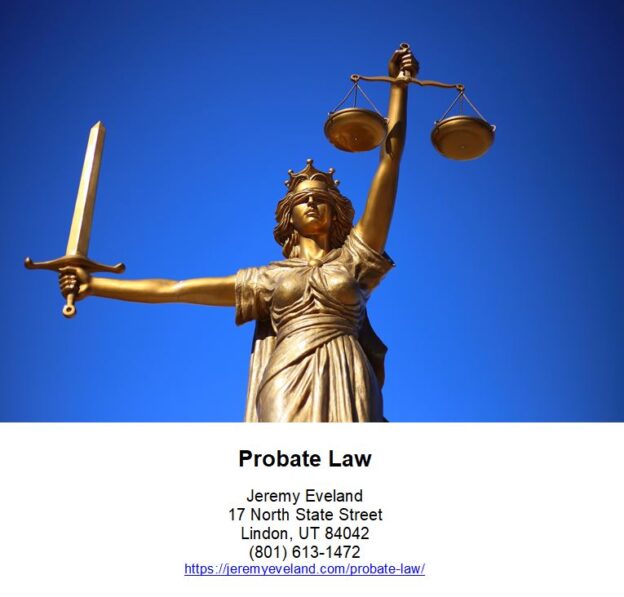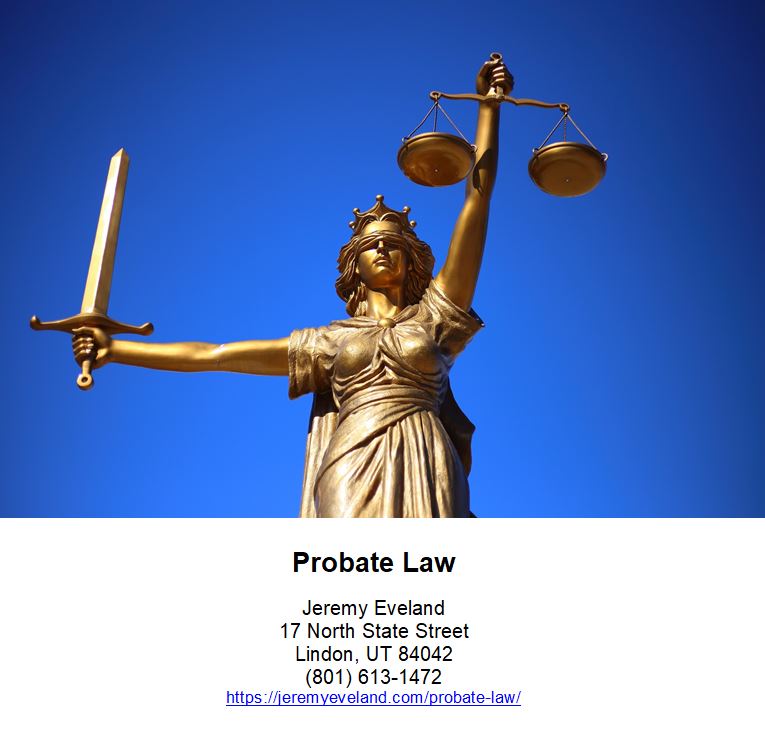In the realm of legal matters, the process of probate can often be a complex and overwhelming journey to navigate. As uncertainties and emotions intertwine, it becomes imperative to enlist the aid of a skilled attorney who possesses an innate understanding of this intricate domain. Enter the Petition for Probate, a document that serves as a guiding light in the realm of estate administration. This article will shed light on the importance of this petition, its significance in the legal landscape, and how it can pave the way towards a smooth probate process. By the time you reach the end, you will undoubtedly recognize the valuable role that a seasoned attorney can play in ensuring the preservation of your loved one’s legacy.

What is a Petition for Probate?
A Petition for Probate is a legal document that initiates the probate process, which is the legal process of administering the estate of a deceased person. It is typically filed with the appropriate court to notify the court of the death and request the appointment of a personal representative, also known as an executor or administrator, to manage the estate. The petition provides important information about the deceased, their assets, and their intended distribution to beneficiaries. It serves as the starting point for the probate process, guiding the court and the executor or administrator in fulfilling their respective roles and responsibilities.
When is a Petition for Probate Required?
A Petition for Probate is required when someone passes away and leaves behind assets that need to be distributed to heirs or beneficiaries. The need for a probate petition arises when the deceased had assets solely in their name without a designated beneficiary or joint ownership. This typically includes real estate, bank accounts, investments, and personal property. The probate process ensures that the deceased’s debts and obligations are settled, and the remaining assets are distributed according to their wishes or the state laws of intestacy if there is no valid will. Therefore, if you find yourself in possession of assets that require probate, filing a Petition for Probate becomes necessary.
Who Can File a Petition for Probate?
The person who can file a Petition for Probate typically depends on whether the deceased left a valid will or died without a will (intestate). If there is a will, the named executor in the will usually files the petition. However, it’s important to note that the nominated executor must still go through the court’s approval process before being officially appointed. In the absence of a will, or if the will does not name an executor, an interested party, such as a family member or beneficiary, can file the petition. Generally, only individuals who have a direct interest in the estate, like immediate family members or heirs, have the right to file the petition. If you are unsure about your eligibility to file a Petition for Probate, it is advisable to consult with an attorney who specializes in probate law.
The Process of Filing a Petition for Probate
The process of filing a Petition for Probate involves several important steps that ensure the smooth administration of the estate. Understanding these steps can help you navigate through the probate process:
Gathering Necessary Documents
Before filing a Petition for Probate, it is crucial to gather all necessary documents related to the deceased’s assets, debts, and personal information. This typically includes the original will, death certificate, bank statements, property deeds, insurance policies, and any outstanding debts. These documents provide essential information for the court and the executor or administrator to accurately assess the estate and facilitate its distribution.
Preparing the Petition
To file a Petition for Probate, you must draft a comprehensive document that includes crucial details about the deceased, their assets, debts, and intended distribution. The petition should also include information about any named executor or administrator, as well as the beneficiaries or heirs. Properly organizing and presenting this information is essential to ensure a smooth probate process.
Filing the Petition with the Court
Once the Petition for Probate is prepared, it must be filed with the appropriate court. The court may require additional supporting documents, such as a completed probate information sheet, to accompany the petition. Filing fees are also typically required, although they may be waived in certain circumstances. It is important to ensure that the petitioner follows the court’s specific rules and procedures for filing, as any errors or omissions can lead to delays in the probate process.
Notification of Interested Parties
After the Petition for Probate is filed, it is necessary to notify interested parties of the probate proceedings. This includes beneficiaries named in the will, heirs at law if there is no will, and any known creditors. Notice can be provided through various methods, such as mail or publication in a local newspaper, depending on the court’s requirements. Properly notifying interested parties is essential to protect their rights and facilitate their participation in the probate process.
Appointment of an Executor or Administrator
Once the court reviews the Petition for Probate and all necessary documents, it will schedule a hearing to consider the appointment of an executor or administrator. This hearing provides an opportunity for interested parties to voice any objections or concerns regarding the appointment. If the court approves the appointment, the executor or administrator will receive letters of authority or letters testamentary, granting them the legal authority to act on behalf of the estate.
The Role of the Executor or Administrator
After the appointment, the executor or administrator takes on the important responsibility of managing and administering the estate. This involves various tasks and duties, including:
Administering the Estate
The executor or administrator is responsible for overseeing the entire probate process, ensuring that all necessary steps are taken to settle the estate. This includes gathering and protecting the deceased’s assets, paying any outstanding debts, and distributing the remaining assets to beneficiaries.
Inventory and Appraisal of Assets
One of the initial tasks of the executor or administrator is to prepare an inventory of the deceased’s assets. This includes documenting and valuing all assets, such as real estate, bank accounts, investments, and personal property. An accurate inventory is essential for determining the value of the estate and ensuring proper distribution to beneficiaries.
Paying Debts and Taxes
The executor or administrator is also responsible for identifying and paying all outstanding debts and taxes owed by the estate. This includes notifying creditors and settling valid claims against the estate. It is important for the executor or administrator to carefully review and prioritize debts to ensure that they are paid in the correct order as required by law.
Distributing Assets to Beneficiaries
Once all debts and taxes have been paid, the executor or administrator is responsible for distributing the remaining assets to the beneficiaries. This involves making the necessary transfers of property, funds, and other assets in accordance with the terms of the will or the laws of intestacy. The executor or administrator must ensure that the distribution is done fairly and in compliance with applicable laws.
Accounting and Reporting
Throughout the probate process, the executor or administrator is required to maintain accurate records of all financial transactions and provide periodic accountings to the court and interested parties. This includes documenting income, expenses, distributions, and any other relevant information. The executor or administrator must also provide a final accounting and close the estate once all tasks and obligations are completed.
Contesting a Petition for Probate
In some cases, interested parties may have grounds to contest a Petition for Probate. Contesting a petition means challenging the validity of the will, the appointment of the executor or administrator, or any other aspect of the probate process. It is important to understand the grounds for contesting and the steps involved:
Grounds for Contesting
Contesting a Petition for Probate may be based on various grounds, such as:
- Lack of testamentary capacity: If the deceased did not have the mental capacity to understand the implications of signing a will, the will may be deemed invalid.
- Undue influence or fraud: If someone exerted undue influence over the deceased or engaged in fraudulent activities to manipulate the will, it may be contested.
- Improper execution: If the will was not executed according to the legal requirements of the state, it may be considered invalid.
- Revocation: If the deceased intentionally revoked the will before their death, a previous will or the laws of intestacy may govern the distribution of assets.
Commencing a Contest
To contest a Petition for Probate, interested parties must file a formal objection with the court. The objection should clearly state the grounds for contesting and provide any supporting evidence. It is essential to adhere to the court’s specific rules and timelines for filing an objection to ensure its consideration.
Legal Representation
Contesting a Petition for Probate can be complex and challenging, requiring a thorough understanding of probate laws and court procedures. Engaging the services of an experienced probate attorney is crucial in ensuring that your rights and interests are protected throughout the contesting process. An attorney can guide you through the necessary steps, gather evidence, and present a strong argument on your behalf.
Court Proceedings and Evidence
After a formal objection is filed, the court will schedule a hearing to consider the contest. During the hearing, interested parties present their evidence and arguments to support their claims. It is important to have a skilled attorney who can effectively navigate the courtroom, present evidence, examine witnesses, and make persuasive legal arguments.
Possible Outcomes
The court will review all evidence and arguments presented and make a decision on the contested issues. The possible outcomes of contesting a Petition for Probate can vary depending on the specific circumstances. A successful contest may result in invalidating the entire will, imposing a previous will, or determining the distribution of assets according to state laws. Conversely, the court may uphold the original will and reject the contest, affirming the appointment of the executor or administrator.

The Importance of Legal Representation
The probate process can be complex and overwhelming, especially if you are dealing with the emotional loss of a loved one. Having the guidance and support of an experienced probate attorney is essential to ensure that the process is completed smoothly and efficiently. Here are some key reasons why legal representation is vital:
-
Expertise in Probate Laws: Probate laws can vary from state to state and are often complex. An attorney specializing in probate law has in-depth knowledge of the applicable laws and regulations, ensuring that your rights and interests are protected.
-
Navigating Complex Paperwork: The probate process involves extensive paperwork, including drafting and filing various legal documents. An attorney can assist in preparing these documents accurately, ensuring compliance with court requirements and minimizing the risk of errors or omissions.
-
Minimizing Disputes and Contests: Disputes and contests can significantly delay the probate process and create tensions among family members and beneficiaries. An attorney can help navigate potential disputes, provide mediation or negotiation services, and strive for amicable resolutions.
-
Efficient Resolution: With their knowledge and experience, an attorney can efficiently navigate the probate process, ensuring that all necessary tasks and deadlines are met. This helps expedite the estate administration and ensures that beneficiaries receive their rightful inheritance in a timely manner.
-
Peace of Mind: Dealing with the legal complexities of probate can be overwhelming and emotionally draining. By hiring an attorney, you can have peace of mind knowing that your interests are being advocated for, and the process is being handled professionally and efficiently.
Costs and Fees Associated with Probate
It is crucial to understand the financial implications of the probate process, as it typically involves various costs and fees. Here are some common expenses you may encounter:
Attorney Fees
Attorney fees for probate services can vary depending on the complexity of the estate and the specific services provided. Some attorneys charge an hourly rate, while others may work on a flat fee basis. It is essential to discuss fee structures and expectations with your attorney upfront to ensure transparency and avoid any surprises.
Court Fees
When filing a Petition for Probate, there are usually court filing fees that must be paid. The amount varies depending on the jurisdiction and the value of the estate. It is advisable to consult with your attorney to understand the specific court fees applicable to your case.
Executor or Administrator Fees
In some cases, the appointed executor or administrator may be entitled to receive compensation for their services. The amount is typically based on a percentage of the estate’s value or a set fee prescribed by state law. These fees are paid from the estate’s assets and may vary depending on the jurisdiction.
Miscellaneous Costs
There may be additional miscellaneous costs associated with the probate process, such as fees for appraisals, publication of required notices, and obtaining certified copies of documents. Your attorney can help you identify these costs and assist in managing them effectively.

Finding the Right Attorney for Probate
When seeking an attorney for probate representation, it is important to consider the following factors:
Experience and Expertise
Ensure that the attorney you choose has considerable experience and expertise in handling probate cases. They should have a thorough understanding of probate laws and regulations, enabling them to provide the guidance and representation you need.
Client Testimonials
Look for testimonials or reviews from previous clients to gain insights into the attorney’s reputation and track record. Positive client testimonials can provide valuable information about the attorney’s professionalism, communication skills, and ability to deliver satisfactory results.
Comfort and Communication
Establishing a comfortable and open line of communication with your attorney is crucial. During an initial consultation, pay attention to how well the attorney listens to your concerns and responds to your questions. Choose an attorney who is approachable, responsive, and takes the time to explain complex legal concepts in a clear and understandable manner.
Fee Structure
Discuss the attorney’s fee structure upfront to ensure that it aligns with your budget and expectations. Some attorneys may offer flexible payment options, such as payment plans or contingency fees, depending on the circumstances of your case.
Case Evaluation
During the initial consultation, ask the attorney to evaluate your case and provide an assessment of its strengths, weaknesses, and potential outcomes. This can help you gauge the attorney’s understanding of your situation and their ability to handle your probate matter effectively.
In conclusion, filing a Petition for Probate is a crucial step in the probate process, allowing for the proper administration and distribution of the estate of a deceased person. It is important to follow the necessary steps, gather all required documents, and understand the role of the executor or administrator. Contesting a Petition for Probate is possible under specific circumstances, and the assistance of an experienced probate attorney can greatly facilitate the process. Furthermore, hiring an attorney for probate offers numerous benefits, including expertise in probate laws and efficient resolution of the estate’s affairs. While costs and fees may be associated with probate, having proper legal representation ensures that you have the support and guidance needed to navigate through the complexities of the probate process.

